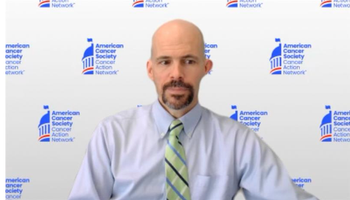
Oncology telehealth services became more popular during the COVID-19 pandemic and remain to be important for patients with cancer, according to a recent survey.

Brielle Benyon, Assistant Managing Editor for CURE®, has been with MJH Life Sciences since 2016. She has served as an editor on both CURE and its sister publication, Oncology Nursing News. Brielle is a graduate from The College of New Jersey. Outside of work, she enjoys spending time with family and friends, CrossFit and wishing she had the grace and confidence of her toddler-aged daughter.
Follow Brielle on Twitter @Brielle_Benyon.

Oncology telehealth services became more popular during the COVID-19 pandemic and remain to be important for patients with cancer, according to a recent survey.
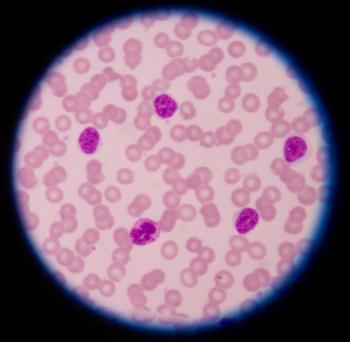
An expert provided an overview of the promising therapies that are being investigated for the treatment of patients with chronic lymphocytic leukemia.

CURE® editors take a look back on last week’s major oncology headlines, from the cancer drug shortage to FDA approvals and the potential benefit of sexual activity for cervical cancer survivors.

Stephen Peck created a nonprofit that addressed the unique needs of men caring for someone with cancer.

Patients insured by Medicaid may be more likely to be affected by the ongoing cancer drug shortage, according to a recent survey.

The Food and Drug Administration approved Keytruda plus chemotherapy for patients with locally advanced unresectable or metastatic biliary tract cancer.
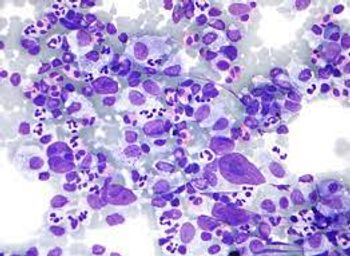
The FDA will review SLS009 for the treatment of peripheral T-cell lymphoma, a rare and aggressive type of blood cancer.

Prostatic urethra length may help predict which patients with prostate cancer are more likely to experience chronic urinary side effects after radiation treatment, according to a recent study.

CURE® editors discuss data from the European Society of Medical Oncology Annual Congress, and how it could lead to new therapies being approved.

The Food and Drug Administration approved Loqtorzi with and without chemotherapy for certain patients with nasopharyngeal carcinoma.

The Food and Drug Administration accepted an Investigational New Drug application for MB-109, a novel agent that combines two mechanisms to treat recurrent glioblastoma and high-grade astrocytroma.

Most patients with prostate cancer live full lives after being diagnosed, so it is essential to consider potential long-term effects before choosing a treatment regimen, an expert said.

Balversa improved outcomes for patients with high-risk bladder cancer, but may only work for those with a certain genetic alteration, an expert explained.

Welireg led to improved time to progression and objective response rates compared to Afinitor for patients with advanced clear cell renal cell carcinoma, according to study findings.

B42-001, a novel CAR-T cell therapy, will be tested in a phase 1 trial for the treatment of patients with BT-001—positive solid cancers.

Patients with intermediate- or poor-risk clear-cell metastatic renal cell carcinoma saw improved response rates with Opdivo with or without Yervoy.

The Food and Drug Administration approved a Keytruda regimen to be administered before and after surgery for patients with stage 2, 3A or 3B non-small cell lung cancer.

The FDA will speed up its review of Tagrisso plus chemotherapy for patients with advanced or metastatic EGFR-mutant non-small cell lung cancer after the regimen led to improved outcomes in a phase 3 trial.

The FDA approved Opdivo for the treatment of patients aged 12 years and older with stage 2B or 2C melanoma that has been surgically removed

Suzanne Somers, who was known for her role on “Three’s Company,” died the day before her 77th birthday.

The Food and Drug Administration will speed up the review of odronextamab for patients with relasped or refractory follicular lymphoma or diffuse large B-cell lymphoma.
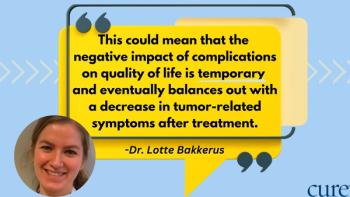
Adding debulking surgery to chemotherapy did not cause a significant decrease in health-related quality of life for patients with metastatic colorectal cancer, research showed.
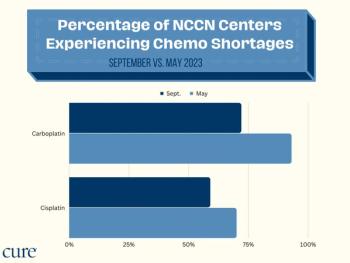
While there has been a slight improvement in the availability of platinum-based chemotherapy agents, most institutions are still facing shortages and “living paycheck to paycheck” with the drugs, a survey revealed.

Adding BXCL701 to Keytruda tended to improve overall survival outcomes for patients with small cell neuroendocrine prostate cancer, according to phase 2 study results.

Measuring cancer DNA in the blood may give clinicians a better idea of which patients with lung cancer need their immunotherapy treatment altered.

Efforts are being made to curb the ongoing chemotherapy shortage, and while things have gotten better, there is still more work to do.

A phase 1/2 trial is examining the novel agent, SNS-101, with or without Libtayo for the treatment of patients with advanced solid cancers.

An expert discusses what patients can expect when being treated with the Hepzato kit, a direct-to-liver therapy for metastatic uveal melanoma.

The FDA approved Bosulif for children aged 1 and older with newly diagnosed or resistant/intolerant chronic myelogenous leukemia.

Most oncology clinics screen for psychosocial distress among patients with cancer, but the same can’t be said for their caregivers, recent research found.